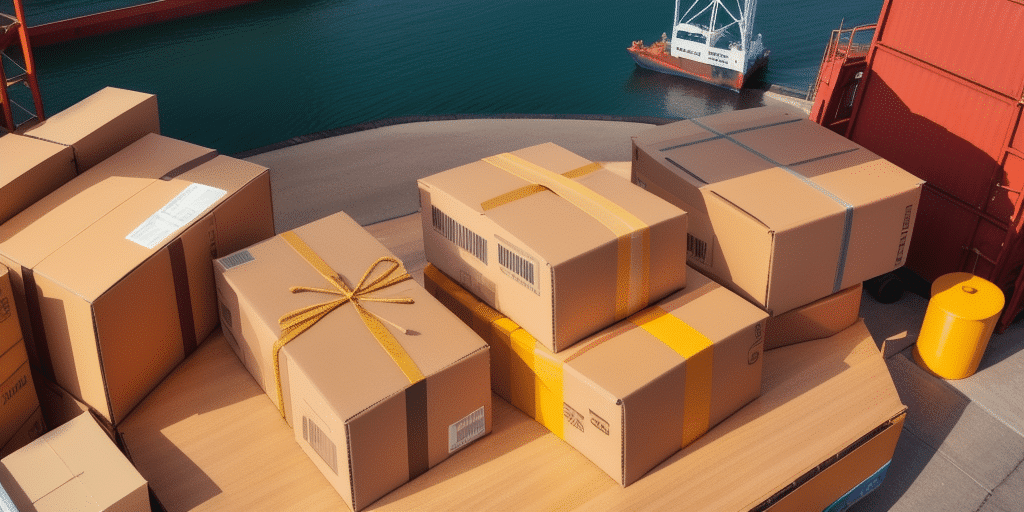The Role of Technology in Owning Your Shipping Operations
The shipping industry has experienced a remarkable transformation over the past few years, largely driven by the exponential growth of e-commerce. This surge has heightened the demand for fast, reliable, and efficient shipping solutions, making the ownership of shipping operations more critical than ever. As businesses strive to meet increasing customer expectations, the integration of advanced technologies becomes essential to streamline operations, enhance profitability, and improve customer experiences.
Streamlining Shipping Processes with Technology
Efficiency is the cornerstone of successful shipping operations. Leveraging technology can significantly streamline various processes, leading to substantial improvements in speed and cost-effectiveness.
Internet of Things (IoT)
The Internet of Things (IoT) has revolutionized the shipping industry by enabling real-time tracking and monitoring of shipments. IoT devices can monitor environmental conditions such as temperature and humidity, ensuring that sensitive goods are transported under optimal conditions. According to a McKinsey report, IoT integration can reduce operational costs by up to 10% through improved resource management.
Blockchain Technology
Blockchain offers a secure and transparent method for tracking shipments and managing supply chain information. This technology minimizes the risk of fraud and errors by providing an immutable ledger of all transactions. A study by Gartner highlights that blockchain can enhance supply chain transparency by 25%, thereby increasing trust and reliability in shipping operations.
Revolutionizing the Shipping Industry with Advanced Technologies
Advanced technologies are fundamentally changing how shipping companies operate, making processes more automated, efficient, and cost-effective.
Robotics and Automation
Robotic systems and automation are increasingly being adopted in warehouses and distribution centers to handle tasks such as sorting, packing, and loading. According to Forbes, the implementation of robotics can increase operational efficiency by up to 30%, significantly reducing labor costs and minimizing human error.
Artificial Intelligence (AI)
Artificial Intelligence (AI) enhances decision-making processes by analyzing vast amounts of data to predict shipping trends, optimize routes, and manage inventory. AI-driven analytics can lead to a 20% improvement in route efficiency, as reported by a Supply Chain Dive article. Additionally, AI-powered chatbots provide real-time customer support, enhancing the overall customer experience.
Benefits of Owning Shipping Operations with Technology
Owning your shipping operations equipped with the latest technology offers numerous advantages, from cost savings to enhanced customer satisfaction.
Cost Reduction and Increased Efficiency
Integrating technology into shipping operations can lead to significant cost reductions. Automated systems decrease the need for manual labor, while optimized routes reduce fuel consumption. According to PwC, businesses that adopt advanced shipping technologies can reduce their operational costs by up to 15%.
Enhanced Customer Experience
Technology enables real-time tracking and transparent communication, which are critical for customer satisfaction. Providing customers with accurate delivery estimates and updates improves trust and loyalty. A survey by Forbes indicates that companies offering real-time tracking experience a 25% increase in customer satisfaction.
Types of Shipping Technologies
Various technologies are available to enhance shipping operations, each addressing different aspects of the supply chain.
Transportation Management Systems (TMS)
TMS software optimizes shipping routes, reduces costs, and simplifies logistics management. By automating routing decisions and consolidating shipments, businesses can achieve up to a 10% reduction in transportation costs, as noted by Gartner.
Warehouse Management Systems (WMS)
WMS software manages inventory, tracks shipments, and improves warehouse operations. Efficient inventory management can decrease stockouts and overstock situations, leading to better resource allocation and a 15% increase in warehouse productivity, according to a McKinsey study.
Supply Chain Management (SCM) Software
SCM software oversees the entire supply chain, from procurement to delivery. This holistic approach ensures seamless coordination and reduces delays, resulting in a 20% improvement in supply chain efficiency as reported by Supply Chain Digital.
Maximizing Efficiency and Profitability with Technology in Shipping
Technology plays a pivotal role in enhancing both efficiency and profitability in shipping operations.
Automated Systems
Automated systems reduce manual labor costs and increase productivity. For instance, automated sorting and packing systems can handle higher volumes with greater accuracy, leading to a 25% increase in overall efficiency as per Forbes.
Real-Time Data Analytics
Real-time data analytics allows businesses to monitor operations continuously, identify inefficiencies, and make informed decisions swiftly. This leads to better resource utilization and a 30% boost in operational efficiency, according to a report by Gartner.
Future Trends in Shipping Technology
The shipping industry is poised for further transformation with emerging technologies shaping its future landscape.
Automation and Robotics
The adoption of autonomous vehicles and drones is expected to increase, enabling faster and more efficient deliveries. According to a McKinsey report, autonomous delivery systems could reduce shipping times by up to 40% and operational costs by 20%.
Blockchain Integration
Blockchain will continue to enhance supply chain transparency and security. Future applications include smart contracts that automate payments and ensure compliance, potentially reducing administrative overhead by 15%, as highlighted by IBM Blockchain.
Artificial Intelligence (AI) Advancements
AI will become more sophisticated, providing deeper insights and more accurate predictions. Enhanced AI algorithms will enable better demand forecasting, route optimization, and risk management, leading to a projected 35% improvement in supply chain resilience, according to Forbes.
Best Practices for Implementing Technology in Your Shipping Operations
Successful integration of technology requires strategic planning and execution. Here are some best practices to ensure a smooth transition:
- Assess Your Needs: Evaluate your current operations to identify areas that can benefit from technological enhancements.
- Choose the Right Solutions: Select technologies that align with your business goals and can scale with your growth.
- Invest in Training: Ensure your team is adequately trained to utilize new systems effectively.
- Partner with Experts: Collaborate with technology providers who have a proven track record in the shipping industry.
- Monitor and Optimize: Continuously monitor the performance of implemented technologies and make necessary adjustments for optimal results.
Conclusion
Technology has become an indispensable tool for owning and managing shipping operations. By embracing advanced technologies such as IoT, blockchain, AI, and automation, shipping companies can streamline their processes, enhance efficiency, and significantly improve profitability. As the industry continues to evolve, staying abreast of technological advancements will be crucial for businesses aiming to maintain a competitive edge and achieve long-term success.






















